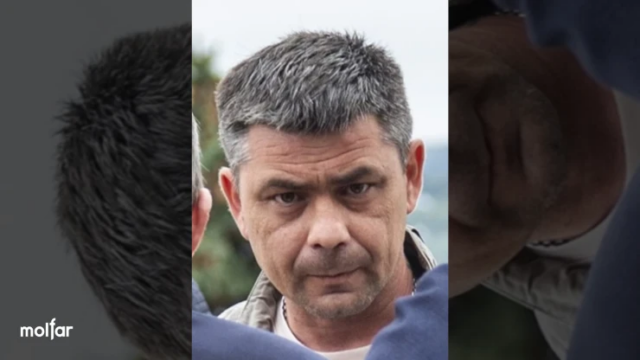
Anton ‘Lotus’ Yelizarov: Wagner Leader MIA in Mali
Publication: Militant Leadership Monitor Volume: 15 Issue: 7
By:

Executive Summary:
- Anton “Lotus” Yelizarov, a 42-year-old Russian commander who took over the combat side of the Wagner Group’s military operations may have been killed or captured in a disastrous ambush on Russian forces in Mali in late July.
- Wagner’s successor in Africa, the African Corps, appears to be faced with two options: abandon the mission to protect the Malian junta or double down on efforts to combat the increasingly coordinated local Tuareg-separatist and Jihadist militant groups.
- Yelizarov was one of the few remaining pre-mutiny Wagner leaders of note, having been hailed by Prigozhin as the “conqueror of Soledar.” While he may have been considered a successor to Prigozhin at some point, he lacks the charisma or anti-establishment outlook of the group’s former leader.
In August 2023, Anton “Lotus” Yelizarov, a 42-year-old Russian commander from Novorossiysk, took over the combat side of the Wagner Group’s military operations. This occurred after the mysterious “plane crash” near Moscow that killed the group’s infamous leader, Yevgeny Prigozhin (see Eurasia Daily Monitor, October 12, 2023; Radio Free Europe/Radio Liberty, August 20, 2023). Prigozhin’s reputation as a leader inspired sufficient loyalty from Wagner fighters to lead them into mutiny, and even before then he reached folk hero status for his populist persona and actions in Ukraine.
Lotus’s high place in Wagner’s post-mutiny hierarchy stems partially from Prigozhin granting him the epithet “conqueror of Soledar” in honor of his key role in the bloody five-month battle to seize the eastern Ukrainian city. In addition, he appears to have been involved in the group’s training of Belarusian forces following the mutiny (European Radio for Belarus, February 6). As a result, those formerly loyal to Prigozhin could be more likely to accept Lotus as his successor than an outside figure. At the same time, the Russian defense establishment views Lotus as a less threatening figure, given his relative lack of charisma or anti-establishment outlook when compared with Prigozhin (Robert Lansing Institute, November 15, 2022).
As a result of Lotus’s senior role in Wagner, the U.S. Office of Foreign Assets Control (OFAC) placed him on the “Specially Designated Nationals and Blocked Persons List” (OFAC, January 1). Among other restrictions, this would prevent Lotus from accessing the U.S. financial system and conducting business with Americans. However, it is unlikely he would be involved with any such enterprises in the first place. Wagner is known for engaging in illicit economic activities in the areas where it operates, especially in Africa (U.S. Department of the Treasury, May 30).
Lotus is known for his actions in the Central African Republic (CAR), where he had a leading role in Wagner’s operations (The Africa Report, January 20, 2023). Just before his death, Prigozhin released a video from Africa—some believe it to have been the Malian desert—in which he declared that his goal was to make Africa “more free” (YouTube/Al Jazeera English, August 22, 2023). Lotus appears to have followed Prigozhin to Africa and remained there, which would have meant that he was far away from Russian territory at the time when the plane carrying Prigozhin, Wagner co-founder Dmitry Utkin, and other major figures connected with the group went down.
While it has not yet been confirmed, Lotus may have recently been killed or captured in battle in Mali. In late July, the Africa Corps—Wagner’s African remnants, reorganized under the Russian Ministry of Defense and led by Yunus-Bek Yevkurov (see Militant Leadership Monitor, April 18)—suffered devastating losses in an ambush by Tuareg separatists and Jihadists in northern Mali (see Eurasia Daily Monitor, July 31). These groups are likely to have been supported and trained by Ukraine, which has promised to aid groups in Africa that are engaging Russian forces (see Eurasia Daily Monitor, July 31). Russian Telegram sources connected with Wagner report that as many as 80 Russian mercenaries were killed, with some 12 fighters in captivity (Ukrainian Military Center, July 28). There has been no confirmation of Lotus’s status: many Telegram sources mourn his death, while others suggest that he was captured and may have already been exchanged (Voice of America, August 1).
The recent disaster in Mali will not halt Wagner/the African Corps’s operations in Africa, regardless of whether or not Lotus was killed. Still, major defeats damage an organization’s morale, and after the loss of Prigozhin and much of Wagner’s leadership, those that remain are finding fewer and fewer commanders from the group’s pre-mutiny era to turn to. The fact that 2,400 French troops failed to end militancy in Mali over almost a decade suggests that the approximately 1,000 Russian troops engaged in counter-insurgency efforts there are unlikely to succeed. Moreover, the African Corps’s willingness to commit atrocities appears likely to inflame the situation, and the disastrous ambush has broken the aura of invincibility that had contributed to Russian and pro-regime propaganda (Radio Free Europe/Radio Liberty, July 31).
It would appear that the Russian Africa Corps is faced with two options in Mali: abandon the mission and withdraw, as they did after a string of failures in Mozambique (The North Africa Journal, September 11); or redouble their efforts, accepting that more Russian mercenaries will die as the situation between Mali’s military junta and Tuareg and Jihadist militant groups continues to deteriorate.



